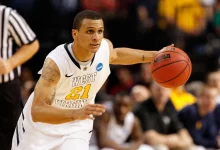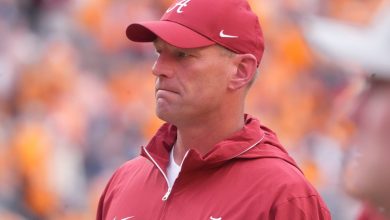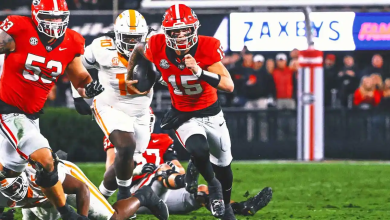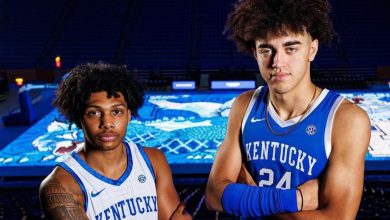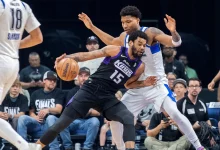Self-reports from Texas Amid heightened monitoring measures, there were five NCAA violations pertaining to sports betting.

Self-Reports from Texas Amid Heightened Monitoring Measures: Five NCAA Violations Pertaining to Sports Betting
In the ever-evolving landscape of collegiate athletics, compliance with NCAA rules and regulations has always been paramount for programs aiming to maintain their integrity and protect their reputation. With the rapid expansion of legal sports betting across the United States, the NCAA has ramped up its monitoring and enforcement mechanisms in an attempt to mitigate the risks associated with gambling-related violations. This has led to an increased focus on how universities and their athletes handle sports betting activities, with heightened monitoring becoming the standard for compliance.
In recent months, the University of Texas has come under scrutiny after self-reporting five NCAA violations linked to sports betting activities. These violations, reported amid a climate of heightened vigilance on the matter, shed light on the challenges faced by collegiate athletic programs in managing the intersection between sports, student-athletes, and legal gambling. The five violations, though self-reported, highlight the broader issues surrounding sports betting and the risks it poses to the integrity of college sports.
This article will delve into the specifics of the five NCAA violations self-reported by the University of Texas, exploring the implications of the violations, the NCAA’s current stance on sports betting, and the steps the University is taking to ensure that such violations do not occur in the future.
Background on NCAA’s Stance on Sports Betting
The NCAA has long maintained strict policies on sports betting to preserve the integrity of college athletics. Historically, the NCAA prohibited any form of sports betting by athletes, coaches, and staff, largely due to concerns over potential match-fixing, point-shaving, and other forms of corruption that could arise if players or coaches were able to wager on games.
However, the landscape of sports betting in the United States began to change significantly in 2018 when the Supreme Court overturned the federal ban on sports betting outside of Nevada. This decision allowed individual states to legalize and regulate sports betting within their borders. Since then, over 30 states have passed legislation legalizing sports gambling, leading to a massive expansion of the industry.
In response to this shift, the NCAA has adjusted its approach to sports betting. The NCAA still prohibits athletes, coaches, and staff from engaging in any type of wagering on college or professional sports, but it has also implemented stricter monitoring and education programs to help student-athletes and other stakeholders understand the potential risks associated with gambling.
The Five Self-Reported NCAA Violations
In a period of heightened monitoring of sports betting activity, the University of Texas voluntarily disclosed five NCAA violations related to sports gambling. These violations were reported to the NCAA after internal investigations identified specific breaches of the NCAA’s rules regarding gambling activities. While the self-reporting is an indication of the University’s commitment to transparency and compliance, these violations highlight how easily students and staff can inadvertently run afoul of the NCAA’s regulations when navigating the murky waters of legalized sports betting.
1. Student-Athlete Participation in Sports Betting Platforms
The first violation involved a student-athlete who participated in a sports betting platform, despite the clear NCAA rules prohibiting such behavior. According to the self-report, the athlete in question placed bets on professional sports events but did so through an online sportsbook that operates legally within the state of Texas. Although the athlete did not place bets on any college events or games in which they participated, the NCAA’s rules prohibit any form of sports betting involvement by athletes, even on non-college events.
The violation occurred when the athlete, unaware of the full scope of the NCAA’s gambling rules, was seen engaging with a sports betting app. The University of Texas acted swiftly to suspend the athlete from all team-related activities, and the incident was flagged as a violation in accordance with NCAA guidelines.
2. Coaching Staff Member’s Inadvertent Wagering on Sports
The second violation involved a member of the coaching staff who inadvertently engaged in sports betting activities. According to the University’s self-report, this coach placed a small wager on a professional sports event during an offseason period, but the bet was made on a website accessible from within Texas, which legally operates within the state. However, because the coach was in a role that involved interaction with student-athletes, the violation is considered more serious.
Even though the coach did not wager on any college games or interact with players while placing the bet, the NCAA maintains that coaching staff members must adhere to the same rules prohibiting sports betting. This violation came to light after the coaching staff member self-reported the incident to the university’s compliance office. Following an internal review, the University of Texas took appropriate disciplinary action, including mandatory re-education on NCAA compliance regulations for all coaching staff members.
3. Alumni Participation in Sports Betting and Unreported Information
The third violation occurred when an alumnus of the Texas Longhorns program, who had maintained close ties to the athletics department, was found to have placed bets on college football games. While the alumnus was no longer part of the university’s active athletic program, the NCAA still considers such activities violations if the individual has significant connections to the program, such as ongoing communication with student-athletes or staff.
The alumnus did not bet on Texas Longhorns games but placed wagers on other college football contests. Although there is no direct violation tied to betting on college games not involving the university, the conflict of interest raised concerns for the athletic department. The university disclosed this activity as part of its heightened internal audit processes, leading to the self-report. This violation also underscored the challenges associated with monitoring alumni engagement with programs after they have left the institution.
4. Betting on College Sports Events by Non-Athletes or Staff
Another self-reported violation stemmed from an incident involving a non-athlete student enrolled at Texas who placed bets on college sports events. This individual was not involved in athletics and was not a staff member; however, as a student at the university, they were bound by NCAA rules prohibiting any form of betting on college sports.
The university learned of the violation through a tip from a fellow student, which led to an internal investigation. The student was found to have placed bets on NCAA basketball games, and the gambling was done via a legal sports betting platform in the state. Although the individual was not directly involved with the athletic program, the university’s compliance office still reported the violation as part of its commitment to upholding NCAA standards.
5. Failure to Monitor and Educate Athletes and Staff Adequately
The final violation highlighted the university’s failure to adequately monitor and educate all student-athletes and staff members about the NCAA’s rules regarding sports betting. Despite the university’s efforts to implement educational programs and distribute materials outlining the rules, the institution did not have a comprehensive or updated system for ensuring that all personnel, particularly newly recruited athletes, were fully aware of the legal and regulatory landscape surrounding sports betting.
As part of the violation, the NCAA determined that Texas had not enforced sufficient monitoring measures, particularly in light of the growing interest in sports betting among students and staff members. This failure to educate all individuals within the athletics program about the scope and dangers of betting violations led to the fifth and final infraction.
Implications of the Violations
The violations reported by the University of Texas highlight several issues that need to be addressed in collegiate athletics. First and foremost, the challenge of monitoring and regulating sports betting activities is becoming increasingly difficult as the legality of gambling continues to spread across the country. The five violations underscore the fact that even with heightened monitoring measures, the NCAA’s rules on sports betting can be inadvertently breached by athletes, staff, and alumni.
From a broader perspective, these violations could have serious implications for the integrity of the university’s athletic programs. If such violations were to escalate or if they were not reported and addressed in a timely manner, they could lead to NCAA sanctions, including fines, scholarship reductions, or postseason bans. While Texas self-reported these violations, demonstrating a commitment to compliance, future oversight will be critical in avoiding further infractions.
Moreover, the Texas Longhorns’ leadership has made it clear that they are committed to improving internal monitoring systems, bolstering education programs, and ensuring that all staff and athletes are educated on the rules governing sports betting. The university is already reviewing its compliance procedures, seeking to implement more robust mechanisms to prevent future violations.
Steps Forward: Strengthening Education and Compliance
In response to these violations, the University of Texas has outlined several measures to strengthen its commitment to NCAA compliance:
- Revised Educational Programs: The university will launch updated educational initiatives for all student-athletes, staff, and alumni, providing clearer guidance on NCAA rules related to sports betting and gambling activity.
- Expanded Monitoring Systems: To better detect any potential violations, the university will implement more stringent monitoring and auditing processes within its athletics department, ensuring that no individual or group goes unnoticed in terms of sports betting activities.
- Collaboration with NCAA: The University of Texas plans to collaborate with the NCAA to ensure it stays updated on the latest regulations surrounding sports betting, with a particular emphasis on new legal developments and technological changes that could impact compliance.
- Increased Accountability for Athletes and Staff: The university will hold all athletes, coaches, and staff members accountable for maintaining the highest standards of conduct, including the full adherence to NCAA’s gambling policies. Regular compliance checks will be carried out to ensure that no violations go undetected.


